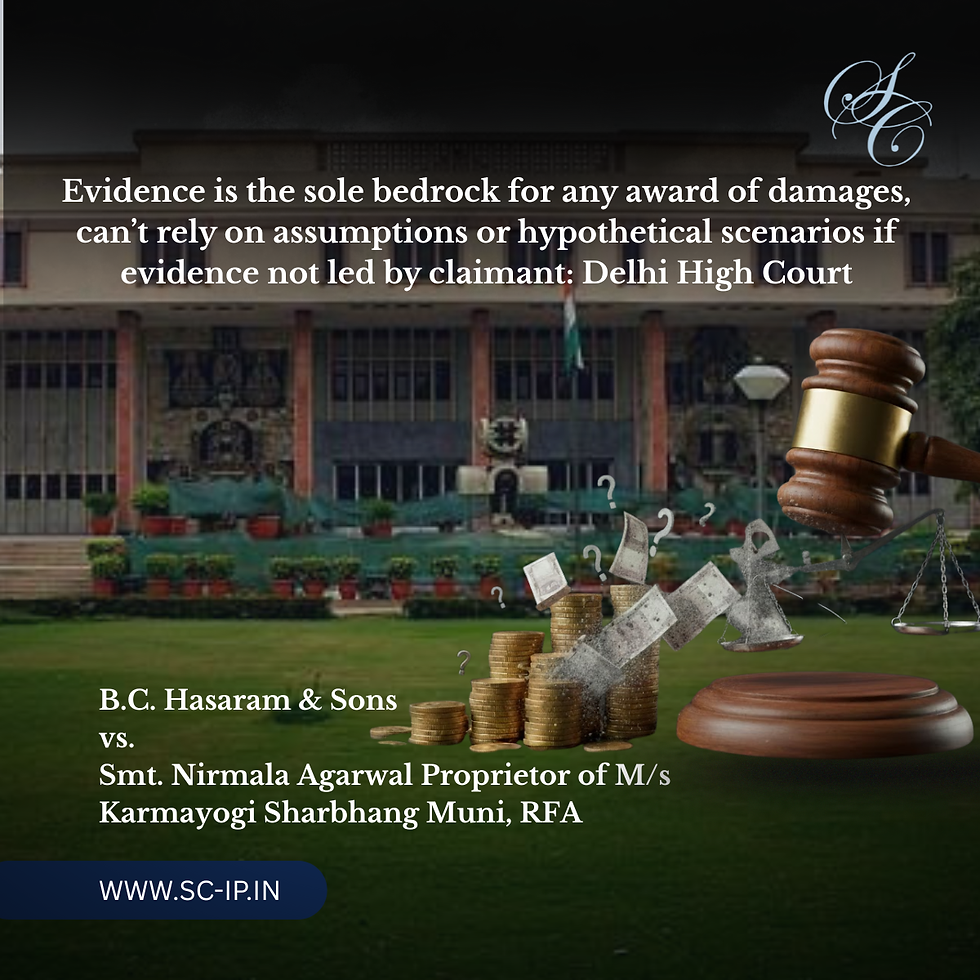Lacoste & Anr. v. Crocodile International Pte Ltd & Anr.
- SC IP
- Sep 3, 2024
- 2 min read
Updated: Jan 9, 2025

Lacoste & Anr. v. Crocodile International Pte Ltd & Anr., CS(COMM) 1550/2016, Judgment dt. August 14, 2024
The Delhi High Court has, in a suit for injunction filed by Lacoste & Anr. (“Plaintiffs”), restrained Crocodile International Pte Ltd. & Anr. (“Defendants”) from using its Crocodile Device mark owing to its deceptive similarity to the Plaintiffs’ registered Crocodile Device mark. The Plaintiffs contended that they are the prior registrants and users of the Crocodile Device mark in India. The Plaintiffs and Defendants had signed a co-existence agreement in the year 1983, as per which, the Defendants had specifically agreed to not use the standalone Crocodile Device mark, and instead always use it with the word CROCODILE. Accordingly, the Defendants’ use of the deceptively similar Crocodile Device mark, amounts to trade mark and copyright infringement and passing off of the Plaintiff’s rights. The Defendants, on the other hand, countered the Plaintiff’s contention by placing reliance on the 1983 co-existence agreement and a 1985 letter addressed by the Plaintiff to co-exist, which allowed the Defendants to use their Crocodile Device mark in countries, including Korea, India, Bangladesh and Pakistan. The Defendants also contended that the suit suffers from delay and laches by at least 3 years.
The court, after hearing to extensive arguments, ruled in favour of the Plaintiff, stating that the Defendants failed to produce any evidence of the co-existence agreement enabling use of the standalone Crocodile Device mark by the Defendants in India. The court also held that the Plaintiff has made out a case for trademark infringement, however, did not find a case of copyright infringement since the court was of the opinion that it is originality in the depiction and not the novelty of concept, that is safeguarded by copyright law. Addressing the issue of delay, the court said that the alleged delay of 3 years is not considered excessive, especially in the context of trademark and copyright disputes which often involve complex considerations and necessitate thorough investigations before litigation. The court further appointed a local commissioner to visit the Defendants’ premises to determine their profits, and thereafter calculate the damages to be awarded to the Plaintiff, in addition to awarding actual costs.



Comments